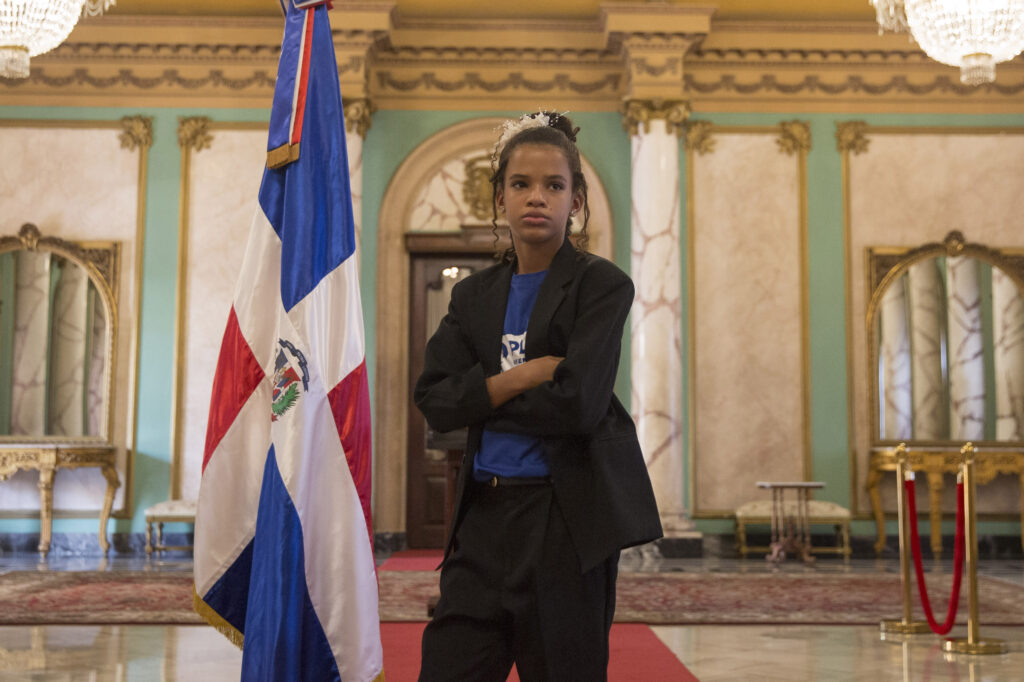In 2020, Melany, a 10-year-old girl from the Dominican Republic, rolled up her sleeves for a unique opportunity. She became the first girl to serve as president of the Dominican Republic. It was only for a day – but it was a chance to advocate for girls’ rights in the highest corridors of power, and Melany made the most of it. That day, she spent about four hours with Luis Abinader (the country’s actual president), formally requesting that he protect and prioritize girls’ rights.
“Mr. President, I will be following up,” she said as she left the National Palace.
Early and forced marriage (before age 18) is common in the Dominican Republic. Even girls as young as 10 have been forced to marry or live with older men. Girls in this situation are more likely to drop out of school, experience domestic violence and sexual abuse and have their opportunities evaporate – all of which fuels the intergenerational cycle of poverty.
In January 2021, a little more than a year after Melany “took office,” President Abinader enacted the 1-21 Law, a decree that made early and forced marriage illegal in the Dominican Republic.
“This law helps a lot, because sometimes girls get married, not by their own choice but because of arranged marriages for money or property or to escape abuse,” explains Melany.

While encouraged by the legislation, Melany, now 13, is unsatisfied. Although early and forced marriage is now banned, informal unions of girls with older men persist and often result in early and unwanted pregnancies. “Because the practice is informal, the numbers are invisible,” she explains.
Despite the complexity of legislating an issue that doesn’t officially exist, Melany continues to be invested in the cause – and her future. Through Crecer Contenta (Growing Up Happy), a teen-pregnancy- and early-marriage-prevention program facilitated by Plan International, she is also learning life skills and acquiring financial literacy.
A big believer in the importance of developing herself “economically,” Melany recognizes the connection between money and agency. “Like sexual education, money management should be taught at school,” she says. “Like sports, learning English and technical skills, it will help someone.”
While Plan International’s #GirlsTakeover project put Melany in the president’s office, the Crecer Contenta project set her on course. The initiative focuses on preventing teen pregnancy and early and forced marriage through training in sexual and reproductive rights and empowering experiences like #Takeover. Participants can also access training in money management and participate in a microfinance program that promotes entrepreneurship. Crecer Contenta engages parents and guardians on the importance of timely, comprehensive education, focusing on human rights, to get the community on board.
In the Dominican Republic:
With the ambition that no girl should marry or become pregnant before the age of 18, Plan International works with more than 120 communities in provinces across the country, facilitating programs that promote changes in behaviours, social norms and policies.